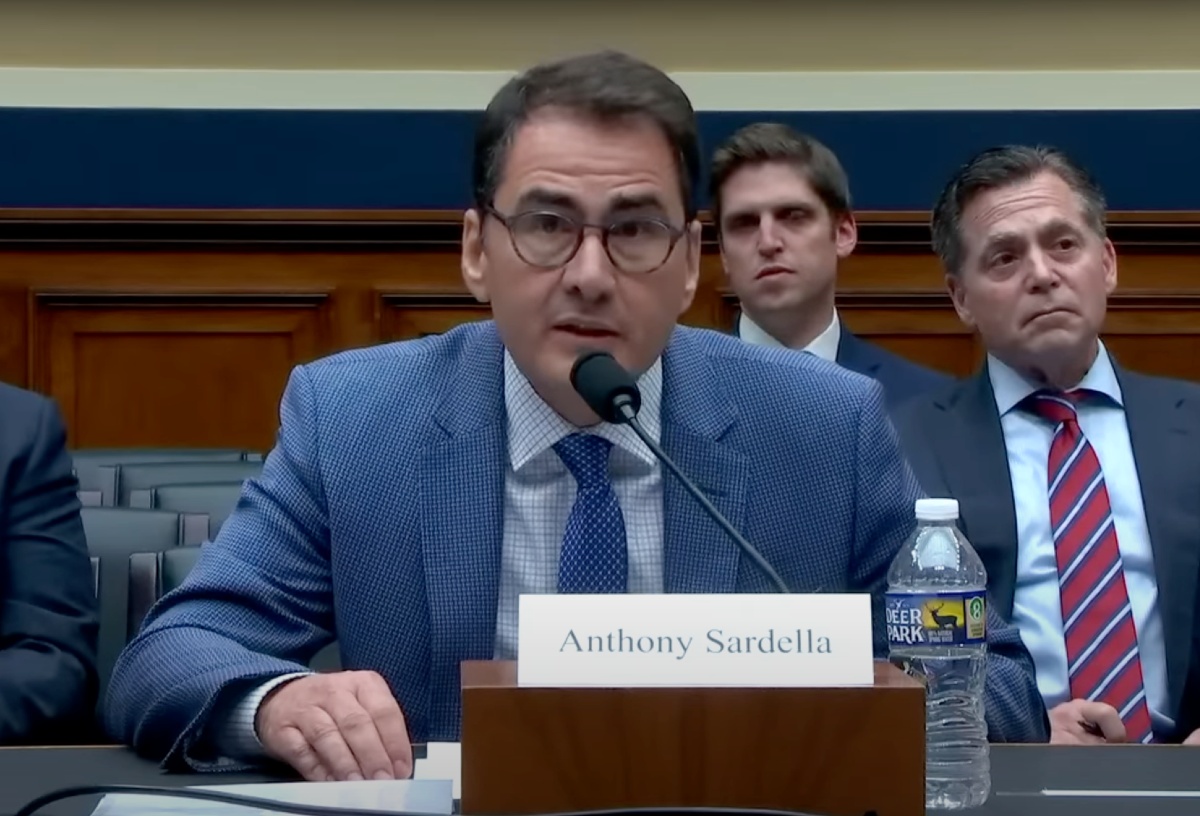WashU Olin’s Anthony Sardella, an established national authority on domestic drug shortages and the economics of pharmaceutical supply chains, emphasized in recent testimony to a congressional subcommittee the depth of US vulnerability to further prescription drug shortages and the need to reduce dependence on other countries to produce essential medicines.
Sardella, adjunct lecturer and senior research advisor to Olin’s Center for Analytics and Business Insights, testified May 11 before the Oversight and Investigations Subcommittee of the Energy and Commerce Committee in the US House of Representatives.
The trend toward overseas production of essential medications has left the US drug supply chain vulnerable and threatens our health security, Sardella told the members of Congress. Indeed, it’s been happening for 30 years as drug manufacturers—particularly those producing generic drugs—take advantage of lower overseas labor and production costs.
“Economic conditions indicate that this environment will worsen, increasing quality and supply risks to the nation’s healthcare security,” Sardella testified.
Establishing WashU as a thought leader on the subject
Days later, The New York Times picked up portions of Sardella’s testimony in a story it published under the headline “Drug Shortages Near an All-Time High, Leading to Rationing.” An industry trade group known as SAMS—Securing America’s Medicines and Supply—also reported on the testimony in a piece commending Congress for investigating the issue.
“The research conducted at CABI has established WashU as a thought leader in the understanding of drug supply chain risks, the economics around those supply chains, why they are causing drug shortages, and why we’re at further risk of additional shortages,” Sardella said.
It’s not the first time Sardella and CABI’s work has gained national attention. Last year, Sardella was invited to a White House listening session hosted by the Biden Administration, including senior industry officials along with academic and nonprofit experts in the field of drug production and pharmaceutical shortages.
Insights the administration gleaned from that session contributed to a report called for by an executive order from President Joe Biden. That order also established the National Biotechnology and Biomanufacturing Initiative and pledged more than $2 billion for biotech and biomanufacturing efforts.
During his testimony and in past white papers, Sardella has called for a multi-faceted approach to incentivize domestic drug production and increased investment in research and development. He also emphasized the need for increased transparency in the drug supply chain and greater coordination between government agencies and private industry.
Covering the issue from various perspectives
Sardella has so far published four research papers that center on the core issue of domestic shortages of essential medications. The first highlighted the economics of the industry that have compelled production to move outside the United States. Sardella proposed a series of funding incentives and policy recommendations to bring more prescription drug production within US borders.
The second focused closely on generic drug production and the risk to US healthcare security thanks to the heavy reliance on overseas production—mostly in India and China—of “active pharmaceutical ingredients,” the active ingredient in medications. For example, out of 52 COVID-related medicines, 75% had no US source of API. And of the top 100 generic medicines consumed in the US, 83% had no US source of API.
A third paper centered on the question of whether US drug makers had the capacity to manufacture essential medicines. Sardella and his research team surveyed 37 US generic pharmaceutical manufacturing sites and found their answer: Yes, capacity exists. In fact, half of domestic drug production capacity sits idle.
In April, Sardella published a fourth paper analyzing pricing and earnings trends in the generic drug production industry and how they create vulnerabilities in the supply chain. “Generics aren’t really sexy as an industry compared to brands,” Sardella said. “But the administrators know that 90% of the prescriptions written each year are for generic drugs. This is the workhorse of our healthcare system.”
Among the solutions Sardella proposed: Create comparative quality metrics allowing differentiation among competing generic medications. The paper also proposes public support for private-public entities that can collaborate to counter hyper-competition within the industry. He cites as an example the API Innovation Center, a nonprofit Sardella founded to enable the delivery of commercially competitive, US-made APIs.
Sardella said he was appreciative of the opportunity to testify before a congressional subcommittee.
“It was gratifying to know that the research we’ve done has the ability to drive policies that secure our health security in the United States,” he said.
Pictured at top: Olin’s Anthony Sardella testifying May 11, 2023, before a US House subcommittee on domestic drug shortages and the economics driving them.

